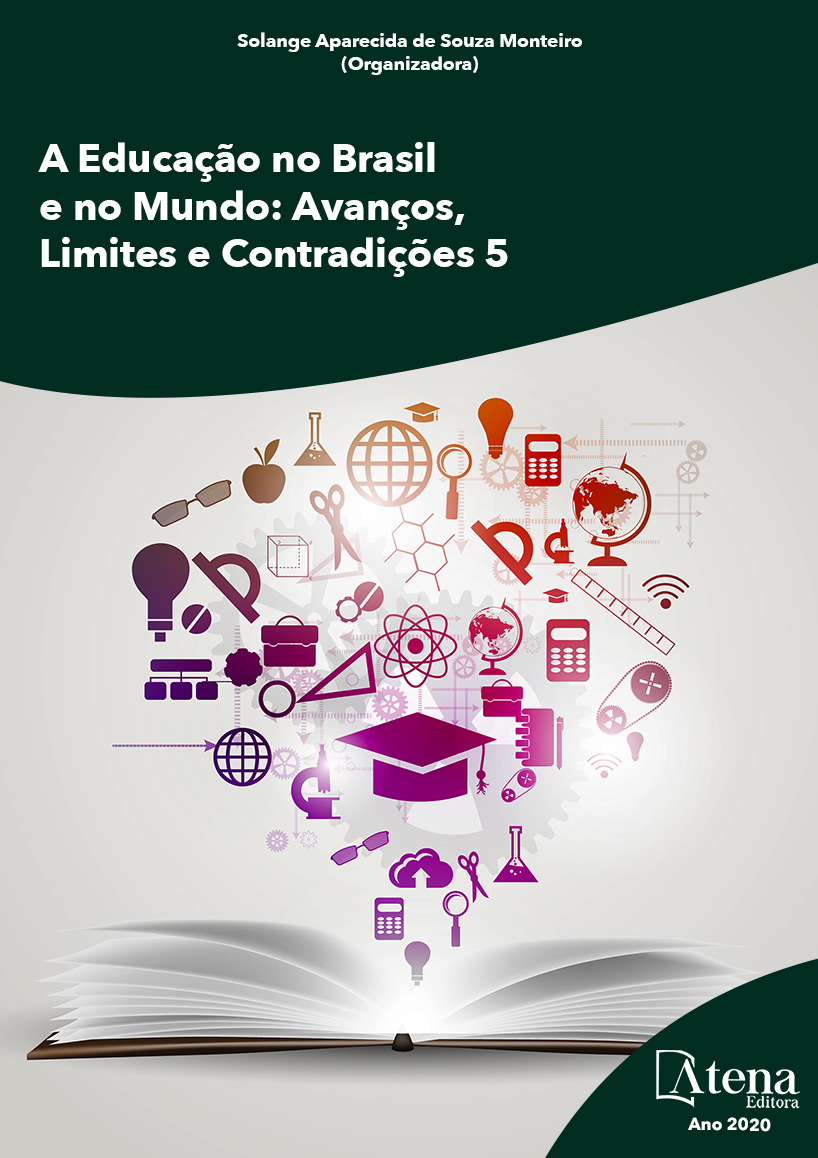
O LÚDICO COMO RECURSO METODOLÓGICO NA INCLUSÃO DE ALUNOS COM DEFICIÊNCIA INTELECTUAL NO ENSINO FUNDAMENTAL
Este artigo objetiva refletir a
importância do lúdico como aliado no ensino e
inclusão de alunos com deficiência intelectual
no nível do fundamental, idade de grandes
descobertas e intensa relação como meio. Em
se tratando de um alunado com deficiência
intelectual, como em qualquer nível, o desafio
é a oferta de um ensino com metodologias
que atendam melhor as suas especificidades
e favoreça o processo de inclusão. Segundo
a perspectiva inclusiva, aceitar as diferenças
implica respeitar as características, os
interesses, as motivações e os projetos de vida
de cada criança, o que só é possível criando
estratégias e recursos. A partir daí pensa-se em
uma escola de qualidade como sendo aquela
que oferte em seus espaços de aprendizagem
salas de aula comum que contemple entre
seus recursos metodológicos o lúdico. Temse
como referência neste trabalho: Montessori
(1965), Rosamilha (1979), Cunha (1998),
Maluf (2003), Dalabona e Mendes (2004),
Kishimoto (apud LUCENA, 2004), Antunes
(2005, 2006), Kishimoto (2005), autores que
defendem o brincar como importante atividade
para o desenvolvimento e o reconhecem como
atividade experiencial e caminho para o trabalho
pedagógico. Este estudo está fundamentado
em pesquisas bibliográficas de metodologia
qualitativa buscando uma melhor compreensão
da realidade do objeto em questão. A linha
de Pesquisa utilizada segue a LP3 Práticas
educativas e de prevenção processos e
problemas. Conclui-se que a atuação do método
lúdico tem uma importante função de favorecer
o desenvolvimento cognitivo, físico, psicológico
e social, fundamentais para a inclusão da
pessoa com deficiência intelectual.
O LÚDICO COMO RECURSO METODOLÓGICO NA INCLUSÃO DE ALUNOS COM DEFICIÊNCIA INTELECTUAL NO ENSINO FUNDAMENTAL
-
Palavras-chave: Lúdico. Recurso metodológico. Deficiência intelectual
-
Keywords: Playful. Methodological. Intellectual deficiency.
-
Abstract:
The present article aims to reflect
the importance of play as an ally in the teaching
and inclusion of students with intellectual
deficiency at the fundamental level, the age
of great discoveries and intense relation with
the environment. In the case of a group of
students with intellectual disabilities, as at any level, the challenge is to offer a teaching
methodologies that better meet their specific needs and favor the process of inclusion.
According to the inclusive perspective, accepting the differences implies respecting the
characteristics, interests, motivations and projects of life of each child, which is only
possible by creating strategies and resources, from there we think of a quality school
as being that that offers in its spaces of learning common classrooms that contemplate
between its resources methodological the ludic. We have as reference in this work
Montessori (1965), Rosamilha (1979), Cunha (1998), Maluf (2003), Dalabona and
Mendes (2004), Kishimoto (apud LUCENA, 2004), Antunes (2005, 2006), Kishimoto
(2005), as an important activity for development and recognize it as an experimental
activity and way to the pedagogical work. This study is based on bibliographic
researches of qualitative methodology seeking a better understanding of the reality of
the object in question. The line of research used follows the LP3 Practical educational
and prevention processes and problems. It is concluded that the action of the play
method has an important function of favoring the cognitive, physical, psychological
and social development so important for the inclusion of the person with intellectual
disability.
-
Número de páginas: 18
- Ingrid Cibele Costa Furtado
- Vanussa Sampaio Dias da Silva


